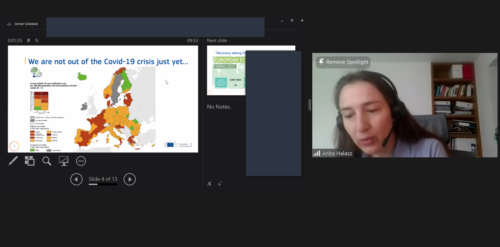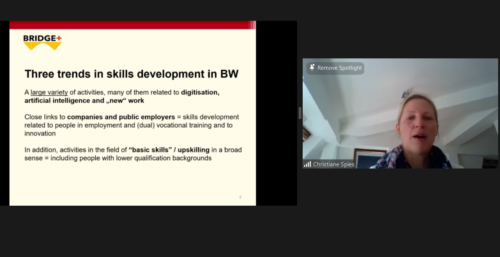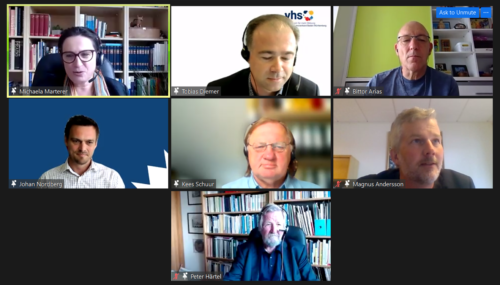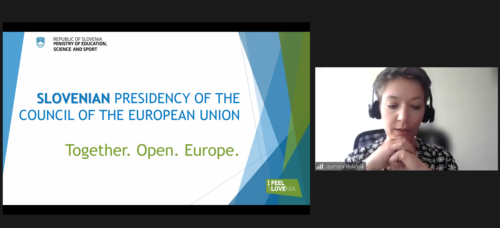Multiple perspectives, a single goal: the BRIDGE+ conference brought skills to the centre of the debate
10/06/2021
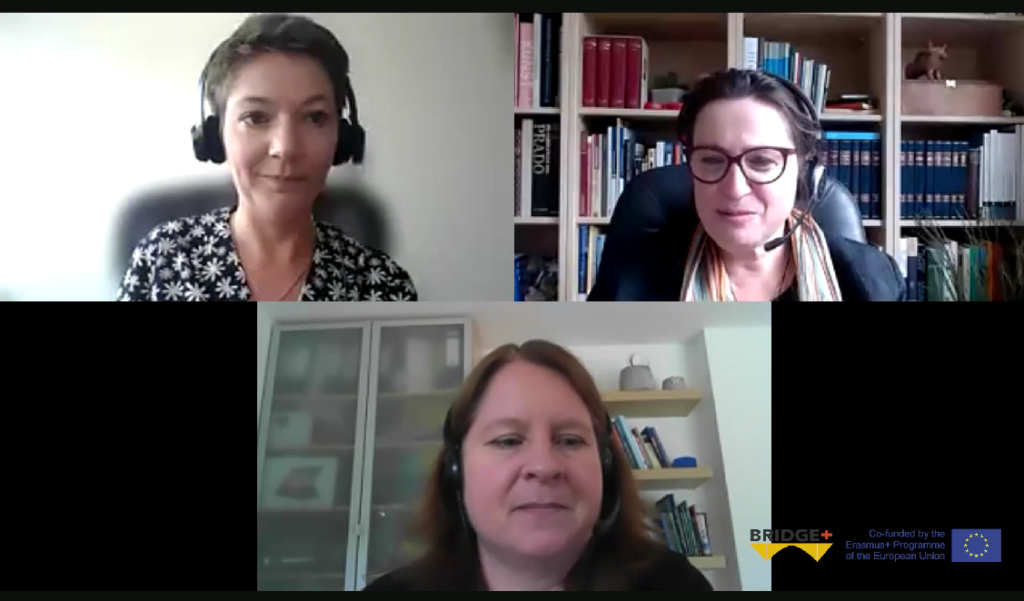
The BRIDGE+ conference “Skills for the future: regional initiatives now!” gathered more than 50 experts from the European level and from European regions, as well as essential stakeholders in the field of lifelong guidance such as companies, guidance institutions, and educational actors. The online event took place on 9 June 2021 and was hosted by EARLALL and the BRIDGE+ consortium.
Moderated by Dr. Michaela Marterer (STVG), who highlighted the ever-growing importance of guidance in the context of the COVID-19 pandemic and a constantly changing labour market, the event welcomed during its first part keynote speakers from the European Commission, Baden-Württemberg’s Regional Ministry of Education, and the company AVL. Koen Nomden (Team Leader for Transparency and Recognition of Skills and Qualifications at the European Commission, DG EMPL) introduced the current needs and future developments of EU skills policies and lifelong guidance. He remarked that “we cannot underestimate the importance of career guidance in the rapidly changing labour market that we are in” and that career guidance will be “critical to smooth transitions.”
His presentation was followed by Anita Halasz (Economic Analyst at the European Commission, DG EMPL), who provided a deeper insight into the EASE Recommendation, a tool to provide long-term effective active support to employment in the context of the COVID-19 crisis recovery. One of the three priorities reflected by this document refers to upskilling and reskilling opportunities and support measures, which puts (adult) education at the centre of labour market recovery.
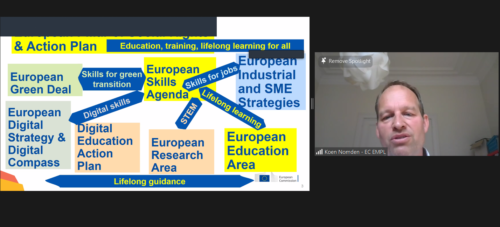
Koen Nomden |
|
|
Then, the regional perspective was provided by Christiane Spies (Centre for School Quality and Teacher Training, Baden-Württemberg Ministry of Culture, Education and Sport). Main trends in skills development in Baden-Württemberg are activities related to digitalization and artificial intelligence, close links to companies and public employers, and basic skills provision and upskilling for people with lower qualification backgrounds. Her inspiring words were complemented by the perspective of the companies, provided by Dr. Markus Tomaschitz (Vice President of Human Resources at AVL, Austria). He underlined that working and learning is a combination whose internal delimitation cannot be distinguished anymore, and companies’ skills management strategies need to reflect this.
The keynote introductions provided a rich context to the BRIDGE+ activities, which were presented by the project coordinator Andrea Bernert-Bürkle (vhs Baden-Württemberg). BRIDGE+ is a forward-looking initiative that has future skills and regional strategies at its core. The project has developed a set of results that include a training concept for guidance counsellors with a digital component, skills analysis tools for companies, and strategies for regional skills development. All these results were discussed by a panel of experts from some of the project partners: Dr. Tobias Diemer (Director, Volkshochschulverband Baden-Württemberg e.V.), Dr. Peter Härtel (Content & Development, Steirische Volkswirtschaftliche Gesellschaft), Bittor Arias (International Project Manager, TKNIKA, Basque VET Applied Research Centre), Johan Nordberg (Validation and Certification CNC Technology, SKTC), Kees Schuur (Board member, Foundation European Center for Valuation of Prior Learning) and Magnus O. Andersson (Director, Lärcentrum Östersund).
The final touch was provided by Jasmina Poličnik (coordinator of PSEU, Slovenian Ministry for Education, Science and Sport), who introduced the main priorities of the upcoming Slovenian Presidency of the Council of the EU, among which adult education and learning (ALE) and the revision of the European Adult Education Agenda will play a key role. She welcomed the insights and perspectives provided by the BRIDGE+ project and encouraged the partnership to further engage in European policies and activities.
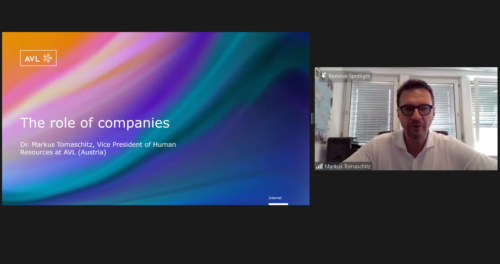
Marcus Tomaschitz |
|
|
Useful links
Presentations
- Koen Nomden, European Commission
- Anita Halasz, European Commission
- Christiane Spies, Baden-Württemberg
- Markus Tomaschitz, AVL (Austria)
- Andrea Bernert-Bürkle, vhs Baden-Württemberg
- Jasmina Poličnik, Slovenian Ministry of Education, Science and Sport
European policy background
- Council Resolution on a renewed European agenda for adult learning (2011)
- European Skills Agenda (2020)
- Commission Recommendation for Effective Active Support to Employment (EASE) (2021)


